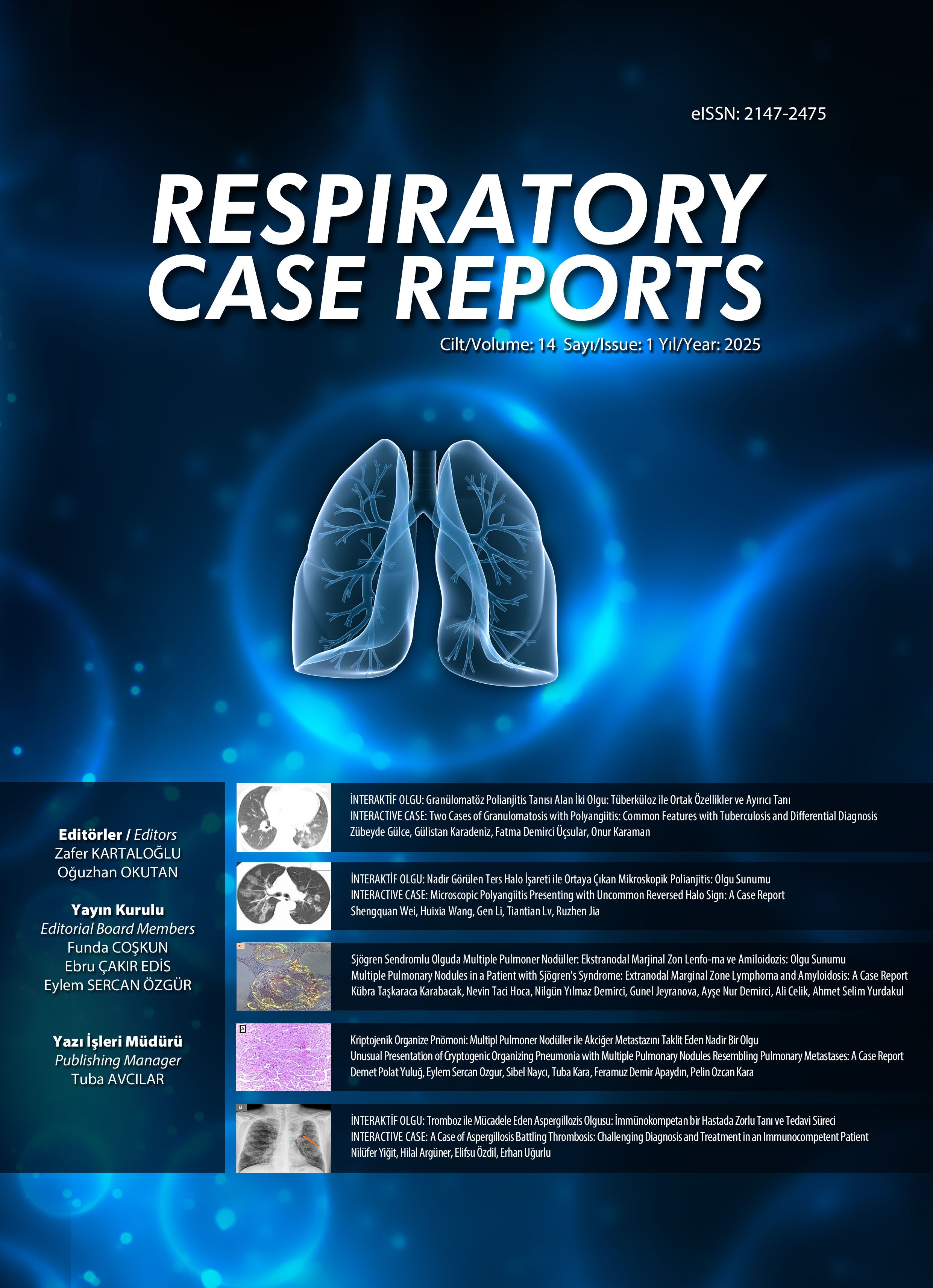
Gecikmiş tanılı paraquat intoksikasyonunda ekstrakorporeal membran oksjenasyonu sırasında dirençli hipoksemi
Nermin Kelebek Girgin, Nurdan Ünlü, Işık Şenkaya Sığnak, Remzi İşçimen, Ferda Kahveci, Hadi ÇağlayanUludağ Üniversitesi Tıp Fakültesi, Anesteziyoloji ve Reanimasyon ADParaquat, tarımda yaygın kullanılan ve akciğerlerde birikimi sonucu ilerleyici pulmoner fibrozise neden olan toksik özelliği yüksek bir herbisiddir. Paraquat intoksikasyonunda birkaç gün içinde çoklu organ yetmezliği veya birkaç hafta içinde pulmoner fibrozise bağlı solunum yetmezliği sonucu ölüm gelişebilir. Veno-venöz ekstrakorporeal membran oksijenasyonu(V-V ECMO) günümüzde akut solunum sıkıntısı sendromunda(ARDS) yaygın olarak uygulanan bir tedavi stratejisidir. Bu yazıda ARDS tanısı ile yatırılan ve tedavi sürecinde V-V ECMO kullanılan bir olguyu sunduk. ECMO desteğine rağmen yeterli oksijenasyona ulaşılamayan ve ECMOya bağlı hipoksi nedenleri dışlanan olguda, tekrar sorgulanan tıbbi öyküsü sonucu üç hafta önce paraquata maruziyet olduğu saptandı. V-V ECMO desteğine rağmen hipoksi devam eden olgu, yoğun bakıma yatışının 6. günü kaybedildi. Bu olgu aracılığı ile V-V ECMO sırasında dirençli hipoksinin nedenlerini gözden geçirmeyi amaçladık.
Anahtar Kelimeler: Paraquat intoksikasyonu, ekstrakorporeal membran oksijenasyonu, hipoksemiPersistent hypoxemia during extracorporeal membrane oxygenation in delayed diagnosed paraquat intoxication
Nermin Kelebek Girgin, Nurdan Ünlü, Işık Şenkaya Sığnak, Remzi İşçimen, Ferda Kahveci, Hadi ÇağlayanUludag University, School of Medicine, Department of Anesthesiology and ReanimationParaquat is a highly toxic herbicide used in agriculture worldwide that causes progressive pulmonary fibrosis (PF) due to selective accumulation in the lungs. Paraquat intoxication can result in death due to multi-organ failure within a few days or respiratory failure due to PF within a few weeks. Veno-venous extracorporeal membrane oxygenation (V-V ECMO) is currently a widely used therapeutic strategy for acute respiratory distress syndrome (ARDS). Presently described is case of a 46-year-old man who was hospitalized with ARDS and treated with V-V ECMO. Expected oxygenation levels could not be attained despite ECMO support. When excluding causes for hypoxia in this patient on ECMO, detailed medical history revealed exposure to paraquat 3 weeks previously. Severe hypoxemia persisted during V-V ECMO and the patient died on sixth day after admission. The aim of this study was to examine probable causes of persistent hypoxemia during V-V ECMO observed in this case.
Keywords: Paraquat intoxication, extracorporeal membrane oxygenation, hypoxemiaMakale Dili: İngilizce











